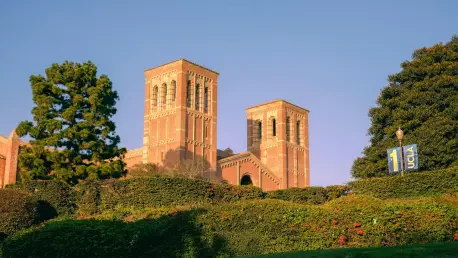An Unfolding Campus Conflict
A tense situation unfolded at UCLA, raising a critical question: Can free speech coexist with civil rights on university campuses? This conflict stemmed from a pro-Palestinian encampment established by students demanding divestment from Israel-linked companies. Caught in the crossfire of this protest were Jewish and Israeli students, who reported harassment, triggering allegations from the U.S. Department of Justice against UCLA for civil rights violations. An exploration of these events reveals a complex landscape where fundamental rights clash in the academic arena.
The Stakes and Why It Matters
This case symbolizes broader implications, affecting not just UCLA but university campuses nationwide. At the core are the conflicts between the ideals of free speech and a safe, inclusive environment, an issue exacerbated by the rise of global student activism and intense geopolitical debate. The delicate balance between protecting students from discrimination and upholding their rights to speak freely is under scrutiny, illuminating a crucial crossroads for educational institutions everywhere.
Dissecting the UCLA Situation
Tracing the events back to spring 2024: a group of pro-Palestinian students established an encampment at UCLA, demanding the university make financial decisions based on international politics. Initially valuing free speech, UCLA permitted the encampment, despite growing disruption on campus. However, the human blockades, which restricted access to certain students based on political beliefs, marked a turning point. The escalation led to the U.S. Department of Justice’s intervention, pointing out systemic anti-Semitism and demanding action from the university.
Insights from Experts and Stakeholders
Stakeholders from all sides provided insight into the unfolding situation. UCLA officials expressed a commitment to resolving tensions, although the DOJ criticized their hesitance in addressing the hostile environment. Civil rights advocates emphasized the necessity of upholding laws that ensure the protection of all students. Perspectives from impacted Jewish and Israeli students highlighted feelings of vulnerability and exclusion. Legal experts pointed out the complexities of civil rights laws in educational settings, offering a nuanced understanding of the university’s obligations.
Navigating the Free Speech vs. Civil Rights Dilemma
Universities facing similar challenges could focus on structured dialogues and educational workshops to foster understanding among diverse student groups. Instituting policies that clearly define acceptable protest behavior can help maintain a balance between supporting free expression and enforcing student safety. Administrators might create frameworks encouraging inclusive discussions, ensuring marginalized voices are heard while maintaining order and respect on campus.
Looking Ahead
As UCLA grapples with this conflict, the university community, alongside other educational institutions, learned from these events. Achieving a harmonious balance between free speech and civil rights is a complex task requiring continual vigilance and adaptation. Establishing clear guidelines and promoting dialogue were crucial steps toward preventing similar disputes, serving as a model for campuses nationwide. The ultimate goal was fostering an environment where diverse perspectives coexist without sacrificing anyone’s rights to safety and respect.









